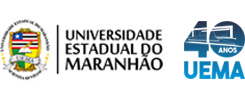Use este identificador para citar ou linkar para este item:
https://repositorio.uema.br/jspui/handle/123456789/3624| Título: | A Importância da ludicidade no desenvolvimento da leitura no ensino fundamental maior na escola Unidade Escolar de Itapecuru-Mirim |
| Título(s) alternativo(s): | The importance of playfulness in the development of reading in elementary school at the Unidade Escolar de Itapecuru-Mirim |
| Autor(es): | Linhares, Layane Ferreira |
| Orientador: | Rocha, Vanda Maria Sousa |
| Data do documento: | 2017 |
| Editor: | Universidade Estadual do Maranhão |
| Resumo: | A presente proposta tem como principal objetivo amenizar as dificuldades no processo ensino – aprendizagem encontrada na escola Unidade Escolar de Itapecuru-Mirim localizada na Rua Alarico Lima s/n, bairro piçarra. Insere se nas discussões acerca do uso do lúdico em sala de aula como recurso pedagógico, que se constitui em analisar o desenvolvimento da leitura dos alunos do 7° ano do Ensino Fundamental. A utilização do lúdico na educação, além do objetivo de desenvolver o aprendizado de forma mais atrativa para o aluno, tem também o objetivo do resgate histórico-cultural dessas atividades em sala de aula se tornando um momento de reconhecimento do histórico familiar e da cultura regional do sujeito. A ludicidade é um recurso que permite a interação dos alunos com os conteúdos apresentados, é uma estratégia de ensino significativa em todos os aspectos, toda criança tem necessidade de atividades que além de ensinar, também os estimulem, assim terão mais facilidade em desenvolver o raciocínio e a criatividade. Referenciamos autores dessa área dentre eles destaca-se: Kishimoto (1998, 2002), Dohme (2005), Grossi (2008), Sousa (2004), Rollof (2010) entre outros. Para a elaboração dessa pesquisa, inicialmente foram realizadas observações na referida unidade de ensino, para verificar na prática do cotidiano, como o lúdico é trabalhado, acompanhada de analises bibliográfica para a compreensão da importância de se trabalhar o lúdico. |
| Resumo: | The present proposal has as main objective to alleviate the difficulties in the teaching - learning process found in the School School of Itapecuru - Mirim located at Rua Alarico Lima s / n, Piçarra neighborhood. It is inserted in the discussions about the use of play in the classroom as a pedagogical resource, which is to analyze the development of the reading of the students of the 7th year of Elementary School. The use of playfulness in education, in addition to the goal of developing learning in a more attractive way for the student, also has the objective of the historical-cultural recovery of these activities in the classroom becoming a moment of recognition of family history and regional culture of the subject. Ludicity is a resource that allows the interaction of students with the content presented, is a strategy of teaching meaningful in all aspects, every child needs activities that besides teaching, also stimulate them, so they will have an easier time developing the reasoning and creativity. We refer authors such as Kishimoto (1998, 2002), Dohme (2005), Grossi (2008), Sousa (2004), Rollof (2010) among others. For the elaboration of this research, observations were initially made in this unit of education, to verify in daily practice, how the play is worked, accompanied by bibliographical analysis to understand the importance of working the play. |
| Palavras-chave: | Ludicidade Leitura Ensino Aprendizagem Conhecimento Ensino-Aprendizagem Língua Portuguesa Professor Playfulness Reading Teaching Learning Knowledge Teaching-Learning Portuguese Language Teacher |
| Aparece nas coleções: | Curso de Licenciatura em Letras Língua Portuguesa e Literaturas de Língua Portuguesa - Campus Itapecuru-Mirim UEMA - Monografias |
Arquivos associados a este item:
| Arquivo | Descrição | Tamanho | Formato | |
|---|---|---|---|---|
| MONOGRAFIA - IRANIR DE ARAUJO SOUSA- LICENCIATURA LETRAS L. PORTUGUESA E SUAS LITERATURAS - UEMA CAMPOS ITAPECURU 2017.pdf | PDF-A | 261.63 kB | Adobe PDF | Visualizar/Abrir |
Os itens no repositório estão protegidos por copyright, com todos os direitos reservados, salvo quando é indicado o contrário.
